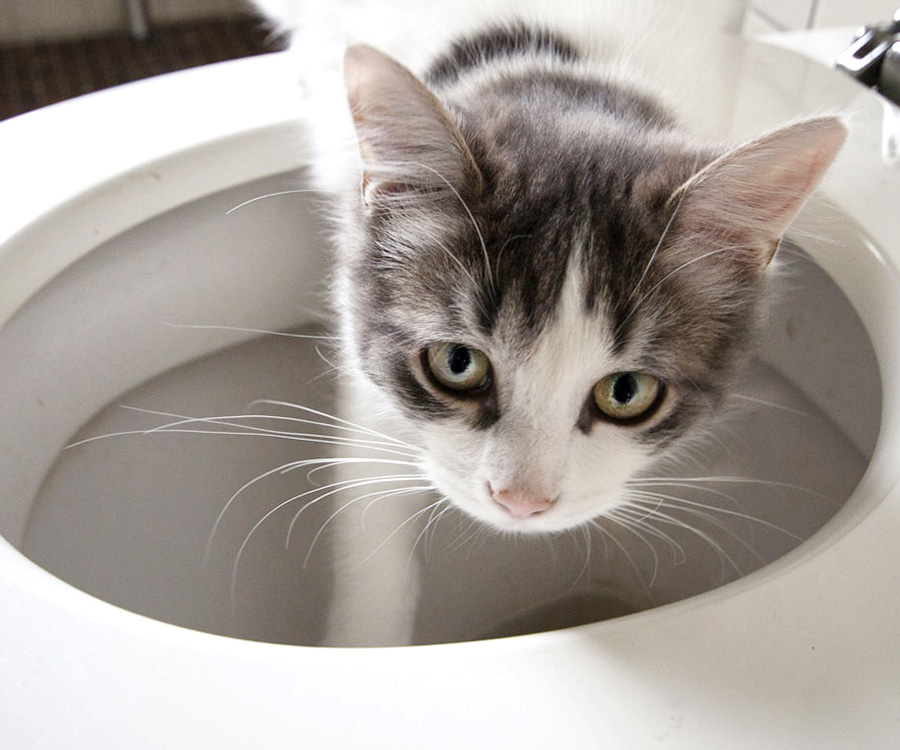The Dangers of Flushing Cat Poop Down Your Toilet - Tips for Safer Handling
The Dangers of Flushing Cat Poop Down Your Toilet - Tips for Safer Handling
Blog Article
We've stumbled on the article about Don’t flush cat feces down the toilet below on the internet and concluded it made sense to discuss it with you over here.

Introduction
As pet cat proprietors, it's vital to bear in mind just how we take care of our feline close friends' waste. While it might seem convenient to flush cat poop down the commode, this method can have detrimental consequences for both the environment and human health.
Alternatives to Flushing
The good news is, there are much safer and extra responsible methods to dispose of cat poop. Think about the adhering to options:
1. Scoop and Dispose in Trash
The most common approach of throwing away pet cat poop is to scoop it into an eco-friendly bag and toss it in the trash. Make sure to use a committed clutter inside story and get rid of the waste immediately.
2. Use Biodegradable Litter
Opt for eco-friendly feline litter made from products such as corn or wheat. These litters are environmentally friendly and can be safely gotten rid of in the garbage.
3. Hide in the Yard
If you have a yard, think about hiding pet cat waste in an assigned location away from vegetable gardens and water sources. Make sure to dig deep adequate to avoid contamination of groundwater.
4. Set Up a Pet Waste Disposal System
Purchase a family pet garbage disposal system especially created for feline waste. These systems utilize enzymes to break down the waste, minimizing smell and environmental effect.
Health Risks
In addition to ecological worries, purging pet cat waste can additionally position health threats to human beings. Feline feces might contain Toxoplasma gondii, a parasite that can create toxoplasmosis-- a potentially severe disease, especially for expecting women and people with weakened immune systems.
Ecological Impact
Purging pet cat poop presents damaging pathogens and parasites right into the water, posturing a considerable risk to water ecosystems. These pollutants can adversely impact marine life and compromise water top quality.
Conclusion
Accountable pet dog ownership prolongs past offering food and shelter-- it likewise entails correct waste management. By refraining from purging pet cat poop down the commode and opting for alternative disposal techniques, we can lessen our ecological impact and protect human health.
Why You Should Never Flush Cat Poop Down the Toilet
A rose by any other name might smell as sweet, but not all poop is created equal. Toilets, and our sewage systems, are designed for human excrement, not animal waste. It might seem like it couldn’t hurt to toss cat feces into the loo, but it’s not a good idea to flush cat poop in the toilet.
First and foremost, assuming your cat uses a litter box, any waste is going to have litter on it. And even the smallest amount of litter can wreak havoc on plumbing.
Over time, small amounts build up, filling up your septic system. Most litter sold today is clumping; it is made from a type of clay that hardens when it gets wet. Ever tried to scrape old clumps from the bottom of a litter box? You know just how cement-hard it can get!
Now imagine just a small clump of that stuck in your pipes. A simple de-clogger like Drano isn’t going to cut it. And that means it’s going to cost you big time to fix it.
Parasitic Contamination
Believe it or not, your healthy kitty may be harboring a nasty parasite. Only cats excrete Toxoplasma in their feces. Yet it rarely causes serious health issues in the cats that are infected. Most people will be fine too if infected. Only pregnant women and people with compromised immune systems are at risk. (If you’ve ever heard how women who are expecting are excused from litter cleaning duty, Toxoplasma is why.)
But other animals may have a problem if infected with the parasite. And human water treatment systems aren’t designed to handle it. As a result, the systems don’t remove the parasite before discharging wastewater into local waterways. Fish, shellfish, and other marine life — otters in particular — are susceptible to toxoplasma. If exposed, most will end up with brain damage and many will die.
Depending on the species of fish, they may end up on someone’s fish hook and, ultimately on someone’s dinner plate. If that someone has a chronic illness, they’re at risk.
Skip the Toilet Training
We know there are folks out there who like to toilet train their cats. And we give them props, it takes a lot of work. But thanks to the toxoplasma, it’s not a good idea.

As an enthusiastic person who reads about Don’t flush cat feces down the toilet, I imagined sharing that post was a good thing. Don't hesitate to set aside a second to distribute this entry if you enjoyed reading it. Thanks so much for going through it.
Book Appointment Now Report this page